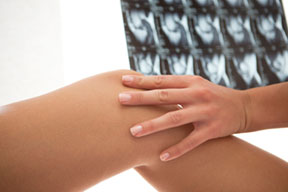 Women with peripheral artery disease (PAD) are in danger of a heart attack and becoming one of the 500,000 women who die from them each year.
Women with peripheral artery disease (PAD) are in danger of a heart attack and becoming one of the 500,000 women who die from them each year.
“Women who have PAD can have significant coronary disease,” said Katherine Gallagher, MD, a member of the Society for Vascular Surgery’s Women’s Leadership Committee. “Most women with PAD have a higher risk of a heart attack than from the complications they have from PAD. As women age, a common complaint is difficultly with walking; so the PAD diagnosis can be missed. Proper treatment will limit complications from PAD and the future risk of cardiac events.”
Dr. Gallagher added that campaigns about heart disease have increased awareness from 30 percent to 54 percent during a 12-year period. “Vascular surgeons are working on programs to educate the public and to make women more aware about the symptoms, dangers and treatments of PAD and other vascular diseases,” said Dr. Gallagher.
“Chest pain and/or discomfort are the main symptoms of heart attacks in men and women,” said Dr. Gallagher. “Women may not feel the excessive chest pressure that many men have. Women can have more common symptoms like shortness of breath with or without chest discomfort, nausea/vomiting and back or jaw pain.”
Other women’s symptoms can include:
* Uncomfortable pressure, squeezing, fullness or pain in the center of the chest. It lasts more than a few minutes or goes away and comes back.
* Pressure, pain or discomfort in the lower chest, upper back or upper abdomen, neck or in one or both arms
* Being dizzy or light-headed, faint or breaking into a cold sweat
* Fatigue
* Feeling like you have the flu
Women who have a higher risk for heart disease include African Americans, Baby Boomers, diabetics and those who are 65 and older, post-menopausal or in early menopause. Younger women are at risk if they smoke or have high blood pressure, diabetes, high cholesterol, or a family history of young people with cardiovascular disease.
To learn more about your vascular health and to find a vascular surgeon, visit www.VascularWeb.org.
Please feel free to share this article with your friends and family and like us on Facebook. At Carlos and Parnell, M.D., P.A. our professional and caring staff makes the difference with patient care.
NewsUSA










